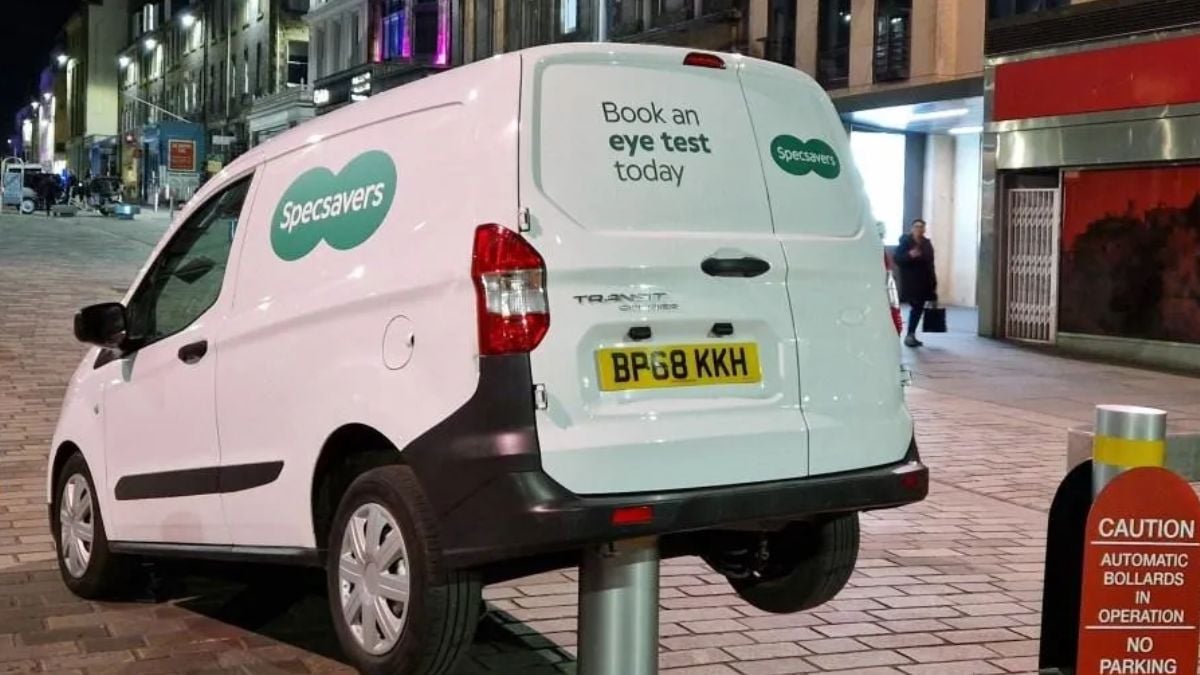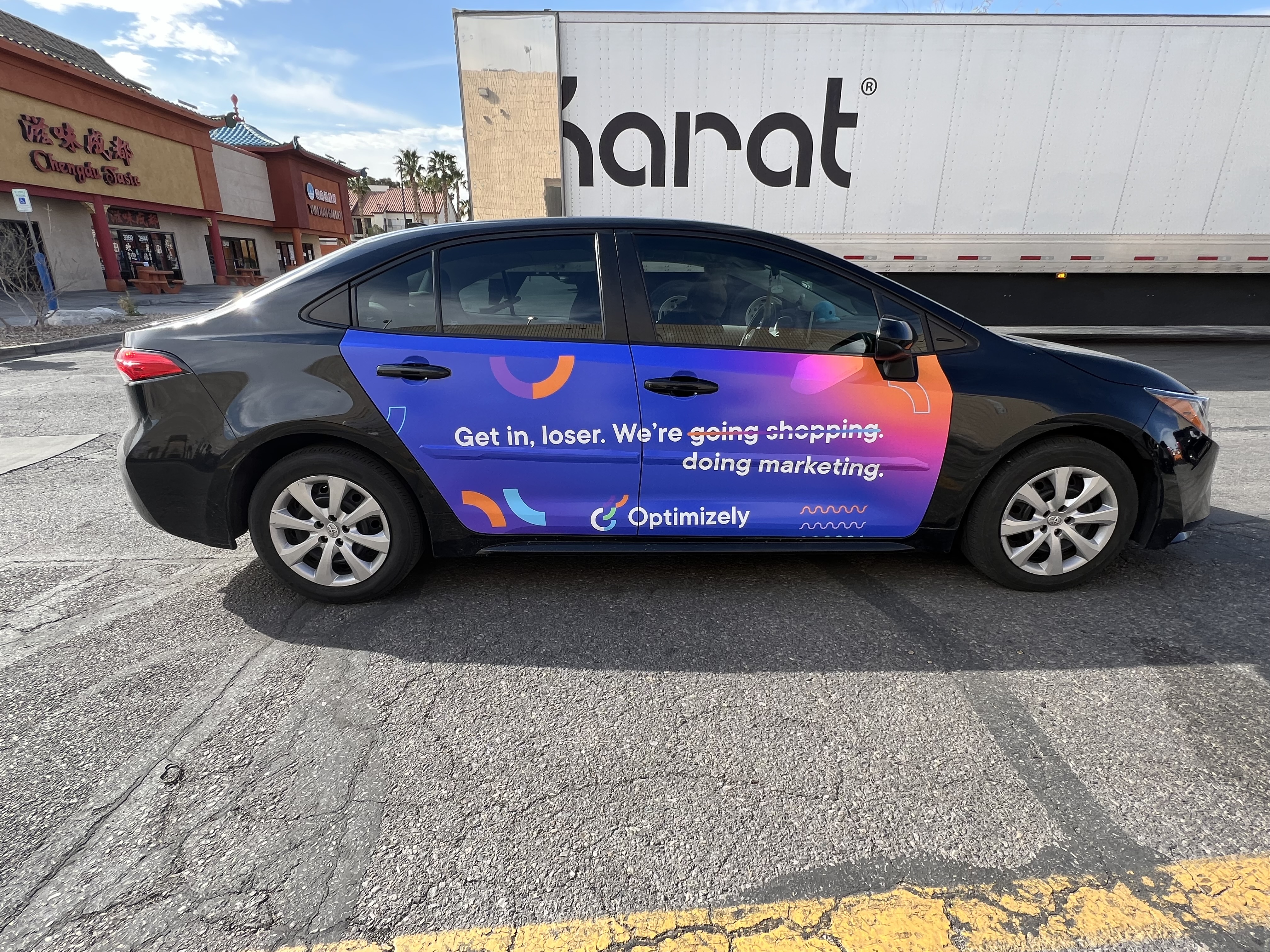
Everyone’s talking about out-of-home or OOH marketing. Outdoor advertising as a marketing tactic has had mixed reviews, but there’s one thing we can agree on: a good OOH campaign cannot be ignored.
Find out everything you need to know about adopting OOH in your marketing strategy in this guide, including some incredible out-of-home advertising examples to feast your eyes on.
What is OOH marketing?
Out-of-home marketing, also known as OOH, is any form of advertising that reaches consumers while they’re outside their homes. It’s the art of turning the world into your canvas and making your brand simply possible to ignore.
We’ve all been there – strolling down the street, sipping your morning coffee, when boom! A giant billboard catches your eye. That, my friend, is out-of-home advertising in action.
Billboards, bus shelter posters, digital screens along the side of elevators, and wraps on vehicles; OOH comes in all different shapes and sizes, but with one goal. Brand engagement.
Why should we care about OOH advertising?
Okay so, we get the hesitation around pushing OOH campaigns. They’re expensive, hard to measure, can’t be easily changed once launched, and don’t offer the same pinpoint targeting of digital ads.
However, there are benefits of OOH marketing you may (/will definitely) be interested in):
- Unavoidable impact: OOH ads are part of the environment, meaning they can’t be blocked or scrolled past so are sure to evoke some kind of emotion.
- Brand awareness: Place your ad in a busy area, and you’ll get thousands of daily impressions – especially great if you’re trying to dominate a specific geographic area.
- The trust factor: In an era of fake news and digital skepticism, there’s something about an OOH ad (and other traditional marketing) that feels more trustworthy.
- Digital amplification: If you have fun with your out-of-home advertising, there’s a strong likelihood it will go down a treat on social media too – hello, extra exposure for free.
- Contextual relevance: You can add instant relevance when you’re smart with where you place your ad. Suncreen ads near a beach? Competitor digs near one of their events? Genius.
Before I settled into my previous role as CMO, I would have told you that the ads on my fellow passengers’ phones were superior — they’re data-backed, easy to target and plugged into a digital ecosystem that moves them through a specific brand journey. But over the last year, I’ve grown increasingly curious about the potential of out-of-home – Shafqat Islam, Optimizely
3 big OOH advertising stats
While OOH advertising might seem like a big investment upfront, its potential to create lasting impact and drive real results makes it a worthy contender in your marketing mix.
Here some the statistics about OOH to prove its effectiveness:
- 80% of consumers have made a purchase after seeing an ad outside the house
- The OOH advertising market is expected to grow 5.33% between 2024 and 2029
- 56% of customers will talk about funny OOH ads they’ve seen (hands up if you’re one of them
)
How to master OOH marketing in 2024
But what are the best practices of out-of-home advertising? How can marketers use it to innovate their work? Here are a few top tips:
- Keep it short and sweet: You’ve got seconds to make an impression – make it count with a punchy message.
- Learn from past projects: These collected experiences and data points can really make the difference between a good OOH campaign and a great OOH campaign.
- Be bold, not boring: Try something that’ll make people look twice… not something that people will choose to avoid on their next commute.
- Scout it out: Always make sure your message is readable (and not hidden in any way) from where your audience will actually see it by going to check out the spot before.
- Get ultra creative: Think about the surroundings – the environment or structure can be part of your message or how you get the attention you’re after.
- Think local: By throwing in local references, it shows you’ve done your research and you’re bound to get interest through the magic of relevancy.
- Play nice with other channels: Make sure your OOH fits with what you’re doing online and elsewhere, so you can get some extra love and admiration for it over in the digital world.
How to measure OOH marketing
Gone are the days when measuring out-of-home was kinda like catching smoke with your hands. These days, we’ve got some nifty tools and techniques to measure the impact of your OOH efforts, including:
- Unique identifiers: QR codes, hashtags, custom email addresses or phone numbers, or promo codes can all be used to track the success of an OOH ad.
- Impression estimations: Use things like average footfall or car traffic data (including things like speed limits and congestion patterns) to get a ballpark figure of your ad’s reach and daily impressions.
- Social media mentions: When your OOH ad gets people talking on social, you know you’ve struck gold – make sure you’re tracking mentions, shares and hashtags with social listening tools.
- Website traffic spikes: Keep an eye on your website analytics to see if traffic increases correlate with your OOH campaign’s timing and location – paying extra attention to new vs returning visitors, for example.
- Inbound sales: The ultimate sign of out-of-home success? Your sales team’s phones and inboxes are blowing UP with non-stop mention of that killer ad you put up in the middle of the city.
6 great OOH examples in 2024
Need some inspiration? Check out these examples of out-of-home campaigns (including one sweet, humble brag) that have smashed it in 2024 so far.
-
Surreal
Surreal’s January or New Year campaign perfectly captured our post-holiday sentiment by proudly proclaiming that we should all… do the least. Their billboards, set ads, and socials all took on some variation of “It’s January, who can be bothered” messaging. And honestly? We’re so here for it.
Why we love it: relatability, visual simplicity, brand personality
-
Specsavers

After winning a Drum Award for Out of Home in 2022, Specsavers came back strong than ever with an experimental OOH stunt as part of their longstanding Should’ve Gone to Specsavers campaign. The project featured branded vans stuck in absurd packing mishaps, with one clear message: Book an eye test today.
Why we love it: spatial humor, engagement potential, shock factor
-
Volkswagen

Zero shade at those who still Google “it’s vs its” juuuuust to make sure but we love appropriate use of apostrophes with a clever physical location to boot. Volkswagen marked the return of the VW bus last summer with this OOH campaign that had our copywriters slow clapping.
Why we love it: word play, innovative use of space, simplicity
-
Vinterior

Ah, there’s nothing like losing the love of your life to flat-pack furniture assembly, amiright? But if Vinterior is really making us pick sides, we might just have too many beloved Ikea pieces to switch alliances. Even so, this bold campaign left us feeling inspired, ambitious, and just a little bit combative.
Why we love it: playfulness, competitive edge, spunk
-
Optimizely (why, thank you)

Here at Optimizely, we’ve rolled out a few OOH campaigns recently – our former CMO (now President), Shafqat Islam loves ’em, and you know what? He’s not wrong.
While out-of-home can have a bad rep of being expensive, hard to measure, and generally a CMO’s worst nightmare, we beg to differ. We had killer responses from our campaigns, including social media mentions about our clever ad placement. Shafqat even got a text from his old school pal. Read all about Optimizely’s out-of-home campaigns and his experience with this not-so old-fashioned marketing tactic.
Why we love it: because we’re extremely biased, obviously
Go out the box with your out-of-home marketing
The moral of the story: go big AND go (out of) home. Marketing has never looked so fun, folks – so embrace OOH advertising and its benefits.




